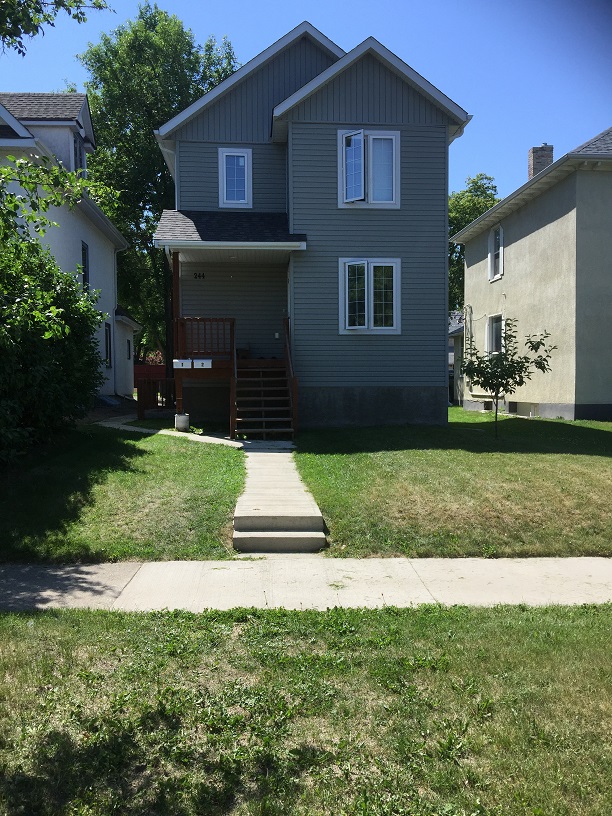Making Wise Investment Decisions
 December 27, 2017
December 27, 2017
There may have been a time when you thought it would be great to buy some property and turn it into a rental unit. Perhaps it’s a smaller fourplex, a larger 16-unit property or even a single dwelling. Whatever the situation, investing in rental property can be prosperous, but there are certain factors to consider when determining which type property is best to invest in.
Research. This is one of the first things that you should do before making any big decisions. Put some time and effort into determining what type of units are in most demand in the current market.
Is it a three bedroom that would accommodate small families or a couple of roommates? Perhaps, the market is demanding one bedroom units that are best suited for students, young professionals or couples? Your decision on the type of property to invest in might be easier to make if there is, in fact, a shortage of any one type of unit in the city.
A second consideration is a location. You’ve heard it before - location, location, location makes all the difference! Is it near a major employer or educational institution? Is it close to elementary or secondary schools? What about a shopping centre? Location plays a key role in determining your ideal tenant and target rent.
Once you have looked at what types of property that might be in demand and where the next factor to consider is whether you to intend to invest in a new rental property or purchase an existing one. Investing in an existing property may affect cash flow.
Property that was built on April 9, 2001 has a 15-year exemption from guideline rent increases or 20-years if it was built after March 7, 2005.
If an older property is selected as an investment, the property may be within the rent control guidelines which means that rent can only be increased each year by the prescribed amount set by the province each year. This will affect cash flow as you are limited in your ability to increase rent to cover expenses and mortgage payments.
On the flip side, if you are building a new rental property you will have 20 years to adjust the rent to cover increases in expenses such as changes in interest rates or property taxes, while still staying within rates of what the market will handle.
Of course, it’s impossible to decide on what type of property to invest in without considering finances. Most financial institutions require 25 per cent equity in a rental property, meaning that the financial institution will finance 75 per cent of the asset. Although the equity may be tough to come up with, you could obtain a line of credit on your main residence to make up an equity shortfall and deduct the incremental interest against the income from your rental property.
There also may be options available through the Canada Mortgage and Housing Corporation that will allow you to purchase a rental property with less than 25 per cent equity, however, there are premiums added to the mortgage as well as covenants such as audited financial statements that could potentially reduce the annual return on investment.
Finally, how do you feel about taking calls in the middle of the night to fix a broken heating system? Are you willing to handle basic maintenance, be on the property immediately following a snowfall? The answer to these questions will help you to decide if you want to self-manage your property or hire a licensed property manager. Not only will a property manager handle all the challenging day-to-day tasks, they will often have systems and processes in place that will mitigate the risk of your investment.
Headquartered in Brandon, Manitoba, Vionell Holdings Partnership (VHP) has operations in Brandon and Thompson. VHP provides rental housing and property management for an array of residential and commercial customers, including Condominium Management. VHP currently has over 2,500 units under management in Manitoba.

![]() October 21, 2024
October 21, 2024








![]() October 21, 2024
October 21, 2024
![]() October 15, 2024
October 15, 2024![]() October 2, 2024
October 2, 2024![]() October 1, 2024
October 1, 2024![]() October 1, 2024
October 1, 2024![]() September 27, 2024
September 27, 2024![]() September 25, 2024
September 25, 2024![]() September 24, 2024
September 24, 2024
![]() December 27, 2017
December 27, 2017
![]() December 21, 2017
December 21, 2017
![]() December 19, 2017
December 19, 2017
![]() December 17, 2017
December 17, 2017
![]() December 4, 2017
December 4, 2017